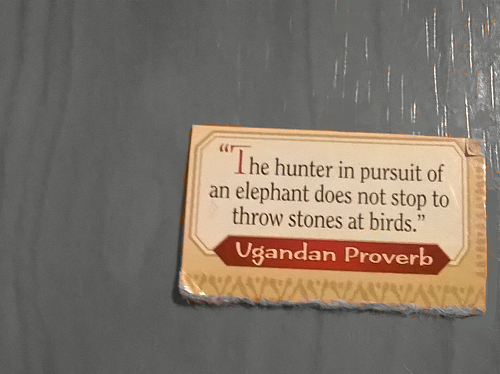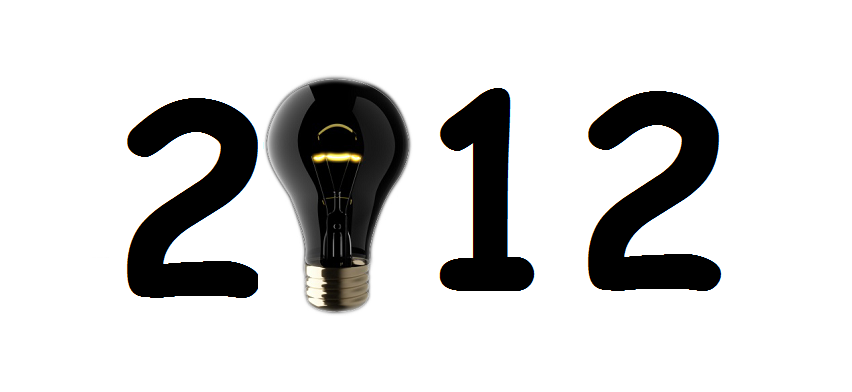“I am what I am and that’s all that I am.” ~ Popyeye the Sailorman
Knowing and embracing your identity is a major aspect of achieving real success. As a matter of fact, understanding who you are, as a human being or as a business, may be the most important step you can take to make sure that you experience success on your own terms. (If being a millionaire is not one of your goals, people may look at you as successful, but that’s someone else’s definition).
If knowing who you are is essential to getting what you want in life, the other side of the coin is acknowledging and accepting who you aren’t. You may not think about it very frequently, but it is something you need to consider. With that in mind, let’s consider this idea from three angles: recognizing 1) who you are not, 2) what your business is not, and 3) who your customers are not. Then acting accordingly.
Who I’m Not
“It is those who concentrate on but one thing at a time who advance in this world. The great man or woman is the one who never steps outside his or her specialty or foolishly dissipates his or her individuality.” – Og Mandino
You’ve probably heard one piece advice more than any other over the course of your life. “Be yourself.” Your parents, teachers and good friends have probably said it on numerous occasions to keep you on the right track. It never gets less true or becomes less valuable.
In the context of this discussion, we can rephrase the statement. Don’t be anyone other than yourself.
Know your goals and aspirations. Don’t be afraid to chase after them or pay high prices to attain them. I’ve said it before, and I think it’s apropos: dreams are never too expensive.
Know your values and morals. Adhere to them no matter what, and be bold in standing up for what you believe. Yes, it will cost you, but integrity is worth it every time. Don’t bow down to pressure to conform to anything that violates your conscience.
Remember that being a copycat is usually a bad idea. Modeling exemplary people is fine, but never surrender your individuality. You are one of a kind.
What My Business Is Not
“When a man’s undivided attention is centered on one object, his mind will constantly be suggesting improvements of value, which would escape him if his brain was occupied by a dozen different subjects at once.
“Many a fortune has slipped through a man’s fingers because he was engaged in too many occupations at a time.”
These are the words of legendary showman P.T. Barnum (from his booklet The Art of Money-Getting). Smart guy.
Think about this: Ferrari doesn’t make family cars. They’re not trying to either. They just make the world’s most iconic sports cars.
Apple is not Microsoft. Neither is Google. Each company likes it that way.
Whether it is explicit (like Whole Foods– no un-wholesome food) or implied, what your business is not matters. What you don’t do makes a difference. This is true for a few reasons.
1) Taking a strong stand for something you’re against will put you on the same “team” as others people with the same opinion. They will more readily relate with you, like you and buy from you.
2) Deciding what you don’t or won’t do will make you a specialist. Being great at one thing or in one area is almost always better (and more profitable) than being decent at several things. Like the brain surgeon. General practitioners are well-paid and highly skilled, but the neurosurgeon can become world-renowned, in-demand and can earn far more than his less specializing peers. Specialists are in a class of their own.
All because they don’t do everything. The key word here is focus.
3) Choosing what you don’t do protects you from wasting time. There are things that you don’t want to do, or don’t do well. Why waste time talking about them with prospective clients? Do you really want to spend your time and energy working something where your results will be less than your best work?
This is very true for me. I am not an artist, graphic designer or HTML expert. It’s good that I know that. I have the can either learn these skills, or avoid situations where they are part of the deal.
It’s also good for potential clients to know, so they don’t have the wrong impression. They can save time knowing that I am not the best choice for every job. I know where I’m gifted, and I’m aware of my limitations.
Your business will see amazing benefits by knowing and making known what you are not and what you abstain from doing.
Who My Customers Are Not
Knowing who you customers are not is huge when it comes to providing them with products and services that they want and need. It will help keep you from creating products that flop. You hear that the foundation of marketing is knowing your customers. Understanding who they are not has great advantages.
Lifetime is “Television for Women.” They know the majority viewers are not men. They don’t try to speak to men. The shows, movies and whatever the heck else they provide is designed for adult women. Similarly, the commercials that run on that channel are designed for female buyers. The people who make the commercials and buy the advertising time slots know who’s watching, too.
When your business is what it is, and isn’t what it isn’t, that fact alone will go along way in determining who your customers are not. You’ll still have to look deeper to find out more. The better you understand your market, the better you’ll be able to serve them. The better you serve them, the greater success you’ll have.
You can think about your target customer in terms of gender (like Lifetime), age (do they still sell Sixteen magazine?), economic status (Rolex and Walmart), and a great number of other distinctives.
Getting to know what your customers are not is part of getting to know them. How well do you know the people you want to sell to?
Succeeding in business is difficult when you’re shooting in the dark. Flip on the light switch by getting in touch with your prospects and customers.





